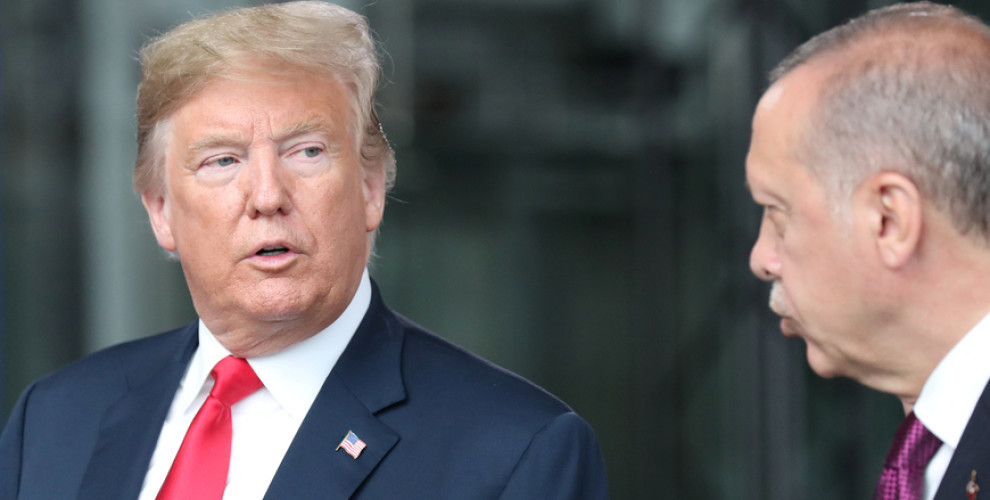US-Turkey relation crisis escalates
Two Turkish ministers hit by US sanctions as crisis deepens.
Two Turkish ministers hit by US sanctions as crisis deepens.

The crisis between the US and Turkey is escalating as the two countries don’t spare low blows.
As negotiations to release evangelical Pastor Andrew Brunson, are ongoing, Washington has made the first move and decided to impose sanctions to Turkey.
The first measures are targeting Turkey’s interior and justice ministers precisely over the continued detention of Brunson.
The move sent the Turkish lira tumbling to historic lows and clearly threatens the longstanding alliance between two NATO members.
The US Treasury Department had confirmed on Wednesday night it was designating Süleyman Soylu and Abdulhamit Gül, the ministers of interior and justice, as leaders of organisations that had perpetrated serious human rights violations, in response to the arrest and incarceration of pastor Andrew Brunson.
“Pastor Brunson’s unjust detention and continued prosecution by Turkish officials is simply unacceptable,” said the US treasury secretary, Steven Mnuchin. “President Trump has made it abundantly clear that the United States expects Turkey to release him immediately.”
The American clergyman has led a congregation in Turkey for years. He was arrested and put on trial over allegations of espionage for a Kurdish separatist group that has waged an insurgency against the state. He is also alleged to have spied for the movement of Fethullah Gülen, the exiled preacher accused of masterminding the coup attempt in July 2016. US officials say the charges are frivolous. Brunson has been in prison for 600 days.
It is clear that US-Turkey relations have been quite ‘nervous’ in the past year, with a series of ‘incidents’ making things even more complicated.
Turkey has said on Thursday it would retaliate against the US sanctions.
The eyes though are now on the US Senate, that on 19 June, had blocked the sale of F-35 to Turkey.
The Senate sent a strong message when it voted 85-10 (in favour of blocking the sale) as part of the National Defense Authorization Act (NDAA).
The Senate bill would make F-35 delivery contingent on Trump "certifying that Turkey is not threatening NATO, purchasing defense equipment from Russia, or detaining U.S. citizens."
The sanctions are being prepared under the Global Magnitsky Act of 2016, which allows the U.S. government to target individuals, companies or other entities involved in corruption or human-rights abuses anywhere in the world. Sanctions under the act allow for the seizure of assets in the U.S., travel bans and prohibitions on doing business with U.S. entities.